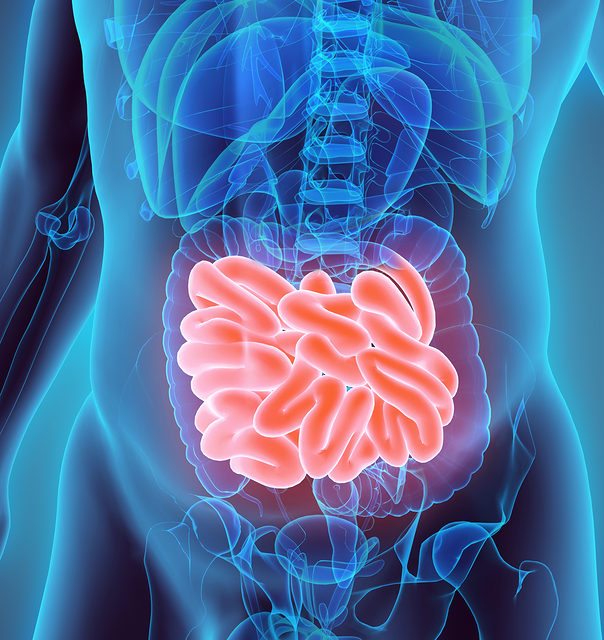The entire gastrointestinal tract, including the small intestine, normally contains bacteria. The number of bacteria is greatest in the colon (usually defined as at least 1,000,000,000 bacteria per milliliter (ml) of fluid) and much lower in the small intestine (less than 10,000 bacteria per ml of fluid). Moreover, the types of bacteria within the small intestine are different than the types of bacteria within the colon. SIBO is an acronym for “Small Intestine Bacterial Overgrowth”. Normally there are no bacteria in the small intestine. In SIBO abnormally large numbers of bacteria (usually defined as at least 100,000 bacteria per ml of fluid) are present in the small intestine. The symptoms of SIBO are similar to irritable bowel syndrome; they include abdominal bloating or distension, gas, diarrhea, and abdominal pain. In advanced cases, there may be vitamin and mineral deficiencies and weight loss.
SIBO can be caused by damage to the nerves or muscles in the gut, resulting in leftover bacteria in the small intestine. For example, diabetes mellitus and scleroderma can both affect the muscles in the gut, leaving room for SIBO to develop. Physical obstructions in the gut, like scarring from surgeries or Crohn’s disease, can also cause an abnormal buildup of bacteria in the small intestine. Diverticuli, which are tiny pouches that can form in the wall of the small intestine, can also collect bacteria instead of passing it on to the colon, where it belongs. There are also medications that influence or disrupt the normal gut flora, such as antibiotics, acid-blocking drugs, and steroids. Another common cause is from a diet high in sugar, refined carbohydrates and alcohol.
The symptoms from SIBO are the result of the fermentation the bacteria produce in the small intestine. Carbohydrates can feed the bacteria, producing gas and other irritating metabolic byproducts as a byproduct of their efforts, a variety of dietary carbs can make symptoms of SIBO worse – such as fructose and sorbitol in fruits, lactose in dairy, fructans in wheat or onions, and more complex fibers in beans and broccoli. Indeed, the more easily fermentable the carbs, the more suffering they are likely to produce – even if the foods they’re found in are objectively “healthy.” These families of highly fermentable carbs are sometimes referred to as FODMAPs. The term FODMAP is an acronym, deriving from “Fermentable, Oligo-, Di-, Mono-saccharides And Polyols.” These carbohydrates are commonly found in the modern Western diet.
The standard medical treatment for SIBO is an antibiotic called Xifaxan. Because Xifaxan is not well absorbed throughout the body, it mostly stays in the gut and is very effective against SIBO. There are, of course, natural substances that can kill bacteria.






